
Freshfel Europe Headlines – Edition 1, 2024
Freshfel Europe’s Headlines publication provides an overview of the Association’s most recent activities.
For more information about Freshfel Europe’s activities please contact the Freshfel Europe Secretariat.

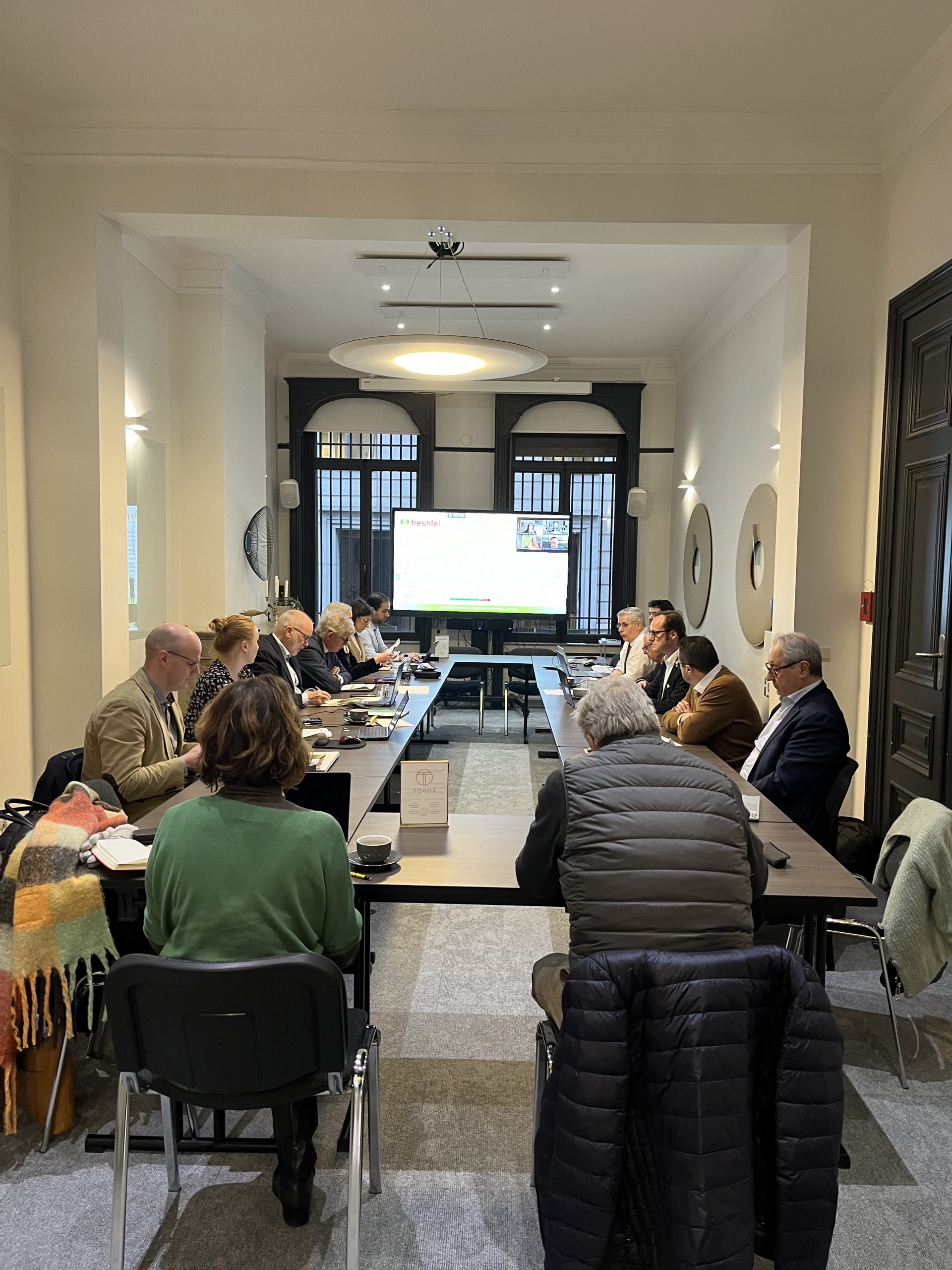
Freshfel Europe’s board set priorities for the sector for 2024 and beyond
Freshfel Europe’s Board met in mid-January to review the Association’s priorities for 2024 and look beyond the upcoming European election year on how to reinforce the position of fruit and vegetables in the food supply chain. The Board designed the broad line of activities to design a fresh perspective for the sector within a stormy environment.
Fresh products have strong environmental and health assets, and their resilience needs to be guaranteed as new geopolitical, economic and climatic threats are on the road towards a more sustainable and accountable food system that can guarantee food security and food quality while being accountable for achievements.
The Board reviewed steps to adapt production within a new environment driven by productivity decline and rising costs impacting competitiveness, by the need to rebuild a new toolbox incorporating digitalisation, artificial intelligence, and new technologies. Trade and logistics need to be rethought as well within a complex geopolitical situation and based on an unlevelled playing field regarding sustainability between the EU and the rest of the world, but also at the intra-EU level on new obstacles are introduced such as with the incoherent packaging restrictions.
As part of good governance of policymakers, the position of the sector will need to be reinforced and anchored in with positive discrimination in legislation as an essential sector part of the solution to societal concerns and be properly valued within the upcoming taxonomy debate.

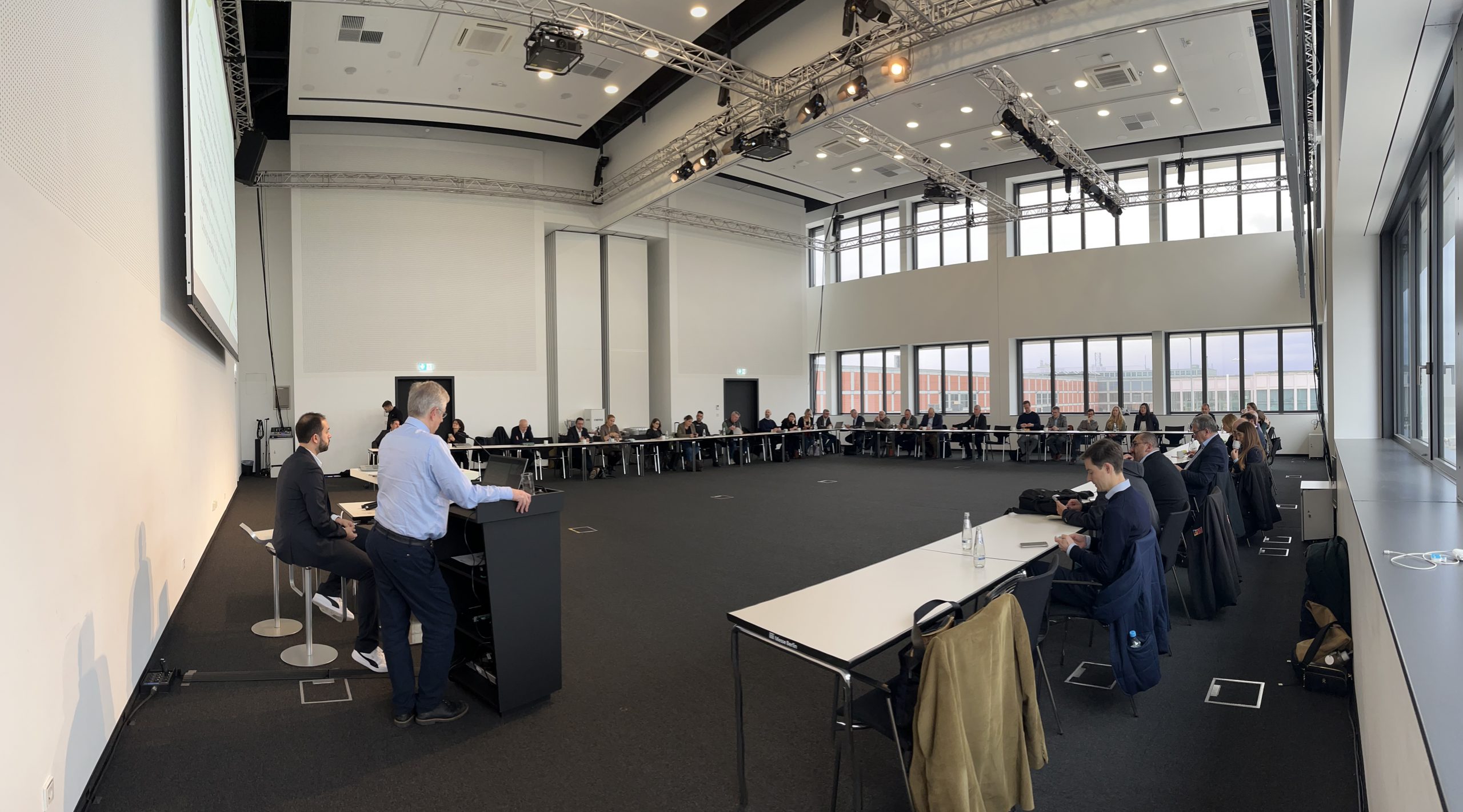
Freshfel Europe presents European fresh produce trade figures and trends for 2023
On 6 February, before the official launch of Fruit Logistica in Berlin, the Freshfel Europe team delivered its annual trade trends presentation to its members, highlighting the evolution of trade trends over the last few years based on the latest available data for 2023, and with a particular focus on the potential impact of EU enlargement.
Freshfel Europe gave an overview of the potential opportunities and issues that the sector faces when it comes to trading externally and within the EU, including the introduction of new tariffs in Norway and Egypt, legislative changes in the UK, or the opportunities offered by the ongoing negotiations for an FTA with New Zealand, India or Indonesia.
Trend-wise, the volume of trade within the EU since 2021 has decreased from 30 to 28 million tonnes, although the value has increased, compensating for lower volumes. Despite this, the volume was still 6% higher than a decade ago.
Concerning the EU’s external trade, the EU’s fresh produce trade deficit was expected to expand, as export volumes were expected to decrease more than import ones in 2023 compared to previous years, as exports marked a 30% decrease in a decade, volume-wise, while imports have grown by 37% in the same period.
During the presentation, the Freshfel Europe team also highlighted the impact of several factors on the trading panorama, including the impact of extreme weather events and climate change, regulatory changes and new logistical challenges in global transportation choke points, which are increasing the costs of trading both inside and outside the EU Single Market.

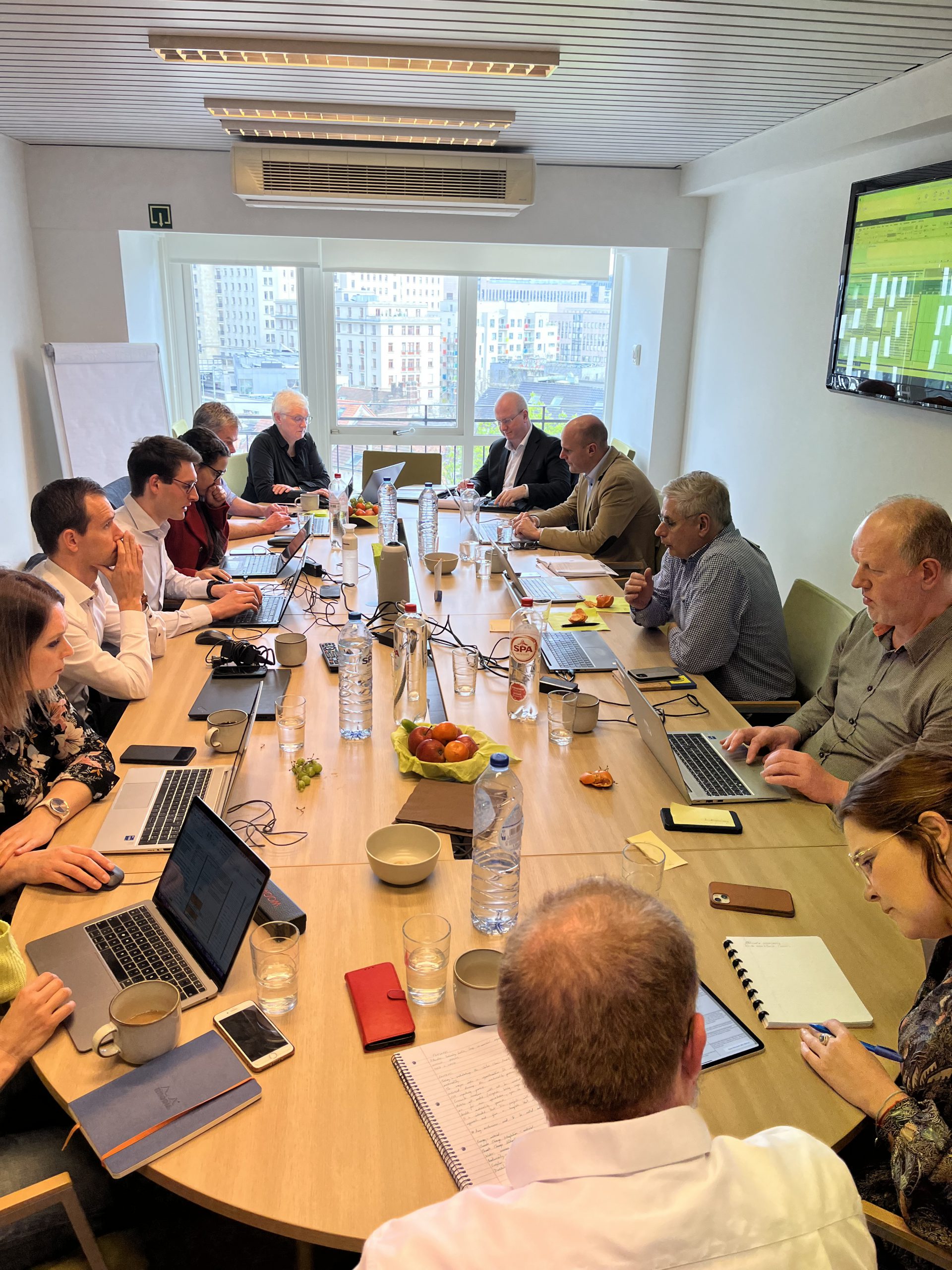
Freshfel Europe launches a sector approach to the Double Materiality Assessment under the CSRD
In February, Freshfel Europe launched its project to, together with member and non-member companies and associations, create a joint sector Double Materiality Assessment, as required under the Corporate Sustainability Reporting Directive (CSRD). The project has brought together close to 30 organisations who together will shape and assess the sustainability impacts for, and by, the fresh produce value chain.
Interest in the project has been high, and Freshfel Europe has participated in interviews and presented on various occasions the ambition and content of the project. By acting together, the sector can share knowledge and best practices on sustainability, while also ensuring that there is a common language when talking about environmental, social and governance topics.

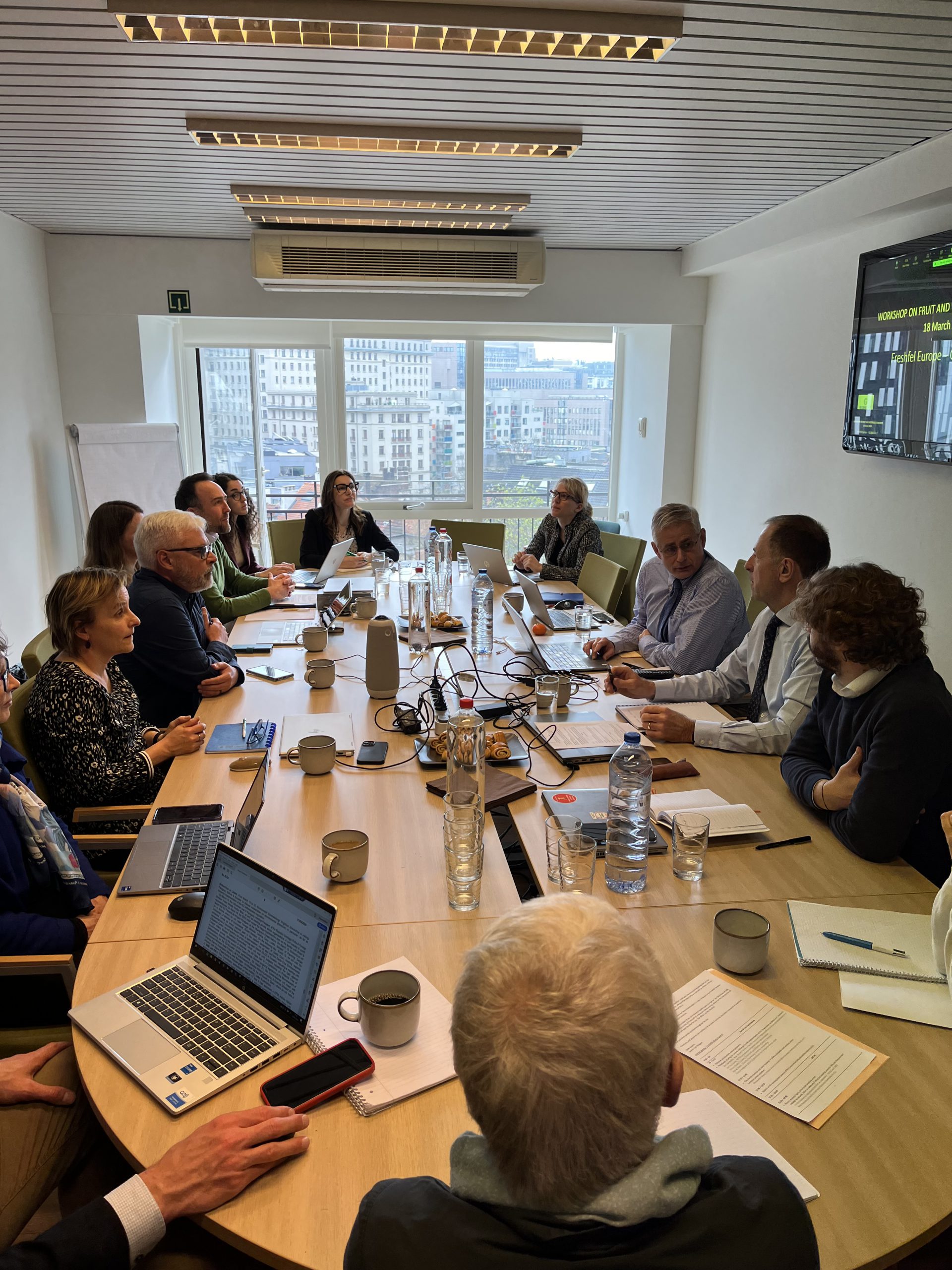
Freshfel Europe organises a Workshop with GLOBALG.A.P. on environmental standards.
Freshfel Europe is engaging closely with representatives of FoodPlus and GLOBALG.A.P. in the development of a new scheme on Environmental Sustainability Standards (ESS). As part of this, Freshfel Europe and the ESS secretariat of GLOBALG.A.P. co-hosted a full day Workshop in Freshfel Europe’s office in Brussels to discuss not only the ESS but also the reality of implementation of other GLOBALG.A.P. standards.
The Workshop collected participants from more than 10 countries and regions around the world, all ready to share on the operational reality and what the GLOBALG.A.P. standards entails for them on a daily basis. The Workshop agreed that there could be a lot of added value from the ESS, but that more reflection and time is needed to ensure that they do not pre-empt upcoming legislation nor contribute to the proliferation of standards and certifications. The ESS should aim to harmonise and streamline relevant environmental sustainability requirements, taking into account that sustainable practices cannot be prescriptive but are highly contextual.


Freshfel Europe gives its perspective on the work of the Strategic Dialogue on the future of agriculture in the European Union
Freshfel Europe responded to Peter Strohschneider, Chair of the EU Strategic Dialogue on the future of agriculture, sharing Freshfel Europe’s perspective on behalf of the European fresh produce supply chain. Freshfel Europe gave its views on the role of growers within rural communities, on the benefits of fresh produce for the planet and its ecosystem and how to unfold the benefits of fresh fruit and vegetables for a bright and thriving future build of the fruit and vegetables most sustainable system.

Freshfel Europe takes part in the Annual Event of French Endive Producers
Amidst the concerns of growers around Europe regarding heavy administrative burden, lost competitiveness and returns due to rising costs, and decline of productivity due to the removal of essential tools to mitigate the proliferation of pests in disease, Freshfel Europe provided a shared perspective with the 400 delegates audiences attending the event in Lille.
The challenges brought by the removal of active substances without solutions were at the centre of concerns for the endive growers and a point in case for the debate to guarantee food security and sovereignty. Beyond the specific endives debate, Freshfel Europe provided other similar examples for other products and reviewed the unsuccessful achievements of the Green Deal based on multiple incoherences, polarization and driven by emotion rather than a solution.


Freshfel Europe responds to British authorities’ consultation on new inspection check rates
Freshfel Europe, on behalf of the European fresh produce sector, and in close collaboration with the British Fresh Produce Centre, delivered an official response to a consultation organised by the British Department of Agriculture (Defra) on 8 March.
After substantial consultation with its members, Freshfel Europe submitted a wide comment on the proposed changes to the retained legislation as it would apply to fresh produce categories defined as medium- and high-risk under the new English legislation, indicating that the sector has significant concerns over the potential impact on costs, time delays and on grouping as a business model.
Freshfel Europe calculated that the proposed changes would impact directly 47% of all fresh export produce to Great Britain, with direct and indirect costs adding up to a bill of approximately 200 million sterling pounds. To boot, as many low-risk products are brought into GB in lorries together with products under other categories requiring inspection and documents, they would also suffer additional delays and costs.
The sector also expressed its concerns that the result of the proposed measures will be a significant increase in the cost of fresh produce in Britain, in light of the dependence of GB on European producers for 38% and 34%, respectively, of all vegetables and fruits consumed in the country.
Lastly, Freshfel Europe called on British authorities to proceed with any future changes more openly and transparently and advocated for a wide-ranging EU-UK SPS Agreement that can prevent any negative impact on cross-Channel fresh produce trading relations.

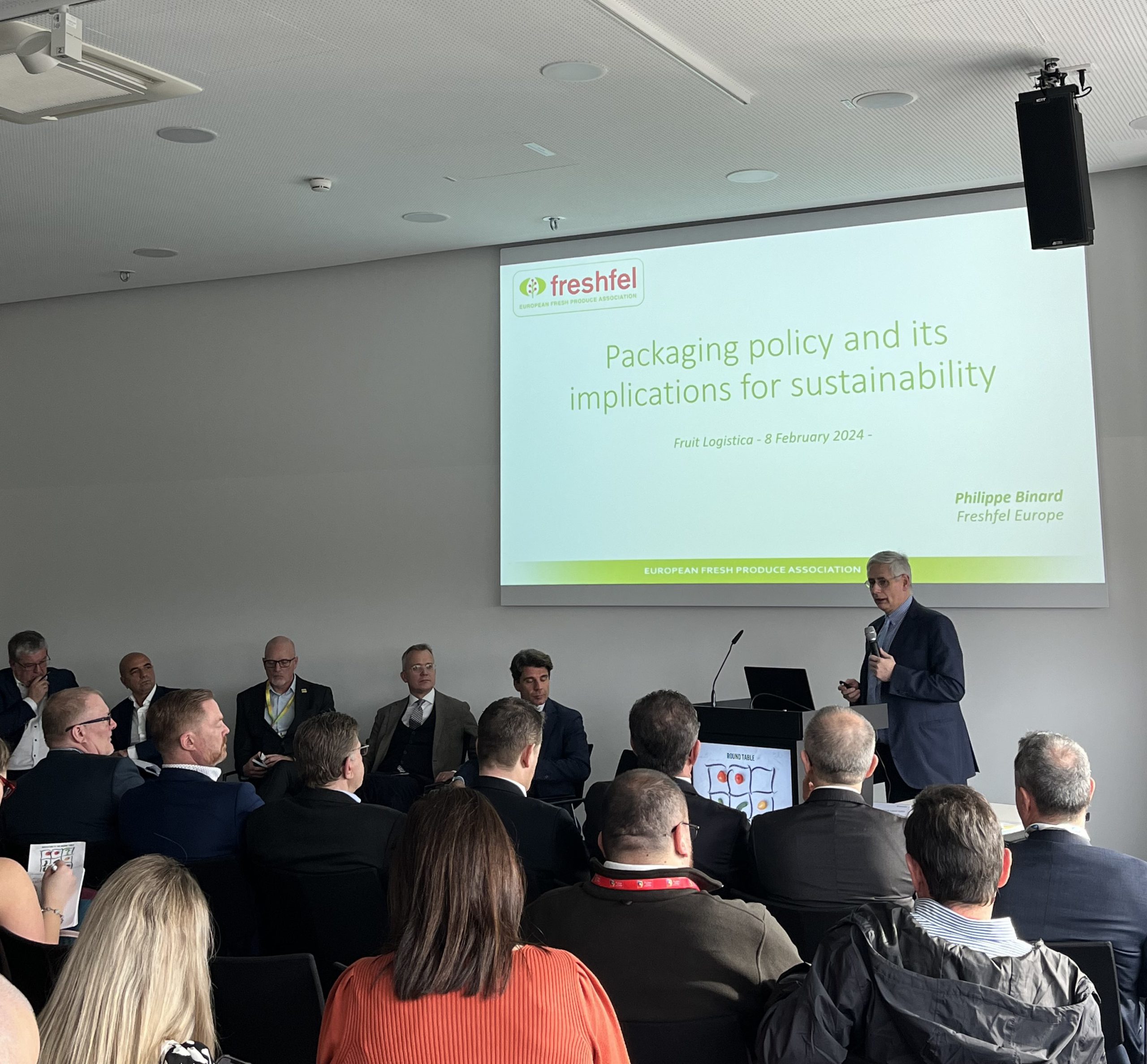

Packaging and packaging waste Regulation – Freshfel Europe highlights potential risks to the EU and Fruit Logistica.
Following an intense period of trilogues, the European Council and the European Parliament reached a suggested compromise text in March. For fruits and vegetables, one can establish that the compromise text is indeed finding its way between the stricter original proposal of banning all packaging of fresh fruits and vegetables and the European Parliament’s position of deleting the ban completely. However, the compromise is not without multiple points of concern for the sector, which have identified several risks to sustainability performance and the functioning of the single market in the text.
Freshfel Europe has communicated these concerns both in person and through written channels such as press releases.
Freshfel Europe also elaborated on this during Fruit Logistica in Berlin this February, where General Delegate Philippe Binard participated in a panel discussion, and Policy Advisor Joanna Nathanson held a presentation on the Fresh Produce Forum stage. Both pressed the importance of allowing soft and structured transitions and keeping feasible alternatives available, so to avoid waste of food, emissions and packaging material.
The sector is requesting the Regulation to keep a coherent implementation across the Union. While this is generally the case with Regulation, the compromise text on packaging and packaging waste allows a high degree of subsidiarity when it comes to packing fresh produce, giving substantial competence to each Member State to choose their restrictions.


Life is Better with Fruit and Vegetables – Newsletter #8
The eighth edition of the newsletter of the Life is Better with Fruit and Vegetables campaign is now available at this link.
The third annual event of the campaign will take place in Paris on 16 May 2024. More information about the programme of the event will be released shortly.
Life is Better with Fruit and Vegetables is an EU-funded programme that targets Millennials and aims to increase their level of knowledge regarding the nutritional benefits, versatility, sustainability, and practicality of fruit and vegetables. Young Europeans aged 25 to 35 represent a key demographic of consumers, as they are still shaping their purchasing and eating habits.
The campaign, which was officially launched during a press conference on the occasion of Freshfel Europe´s Annual General Meeting on 18 May 2022, will run until February 2025 and will take place in France and Ireland, in addition to having a pan-European dimension. It involves Interfel, AIB, Bord Bia, and Freshfel Europe.
For all questions regarding the Life is Better with Fruit and Vegetables campaign please contact Gil Kaufman at g.kaufman@freshfel.org.
